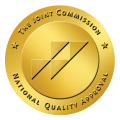Addiction can happen to anyone. However, men are statistically more prone to alcohol and substance abuse than their female counterparts. Given that people go through life with challenges and experiences unique to their sex and gender, gender-specific treatment can be most effective in addressing addiction. This is why Aftermath Addiction Treatment Center offers men’s addiction treatment in MA.
Our treatment center in Wakefield, Massachusetts believes that with the right interventions, overcoming substance abuse is possible. Our friendly and supportive team of specialists offers gender-specific treatments that can increase the chances for holistic recovery and lifelong sobriety. If you want a safe space to heal, contact us at 855-795-1226 to see what we can offer.
What Are the Signs of Cocaine Use in Men?
Cocaine is made from the coca bush leaves, and it acts in the brain’s reward center, leading to a euphoric high that makes it prone to abuse. Cocaine can be snorted, smoked, or injected, and its effects can be felt quickly and wear off in 30 minutes to two hours.
Many people who try cocaine quickly become addicted due to its rapid effects, and long-term use can lead to psychological dependence. Long-term cocaine abuse can damage the lungs, brain, blood vessels, and heart, possibly leading to death. This is why it is essential to be wary of the following signs of cocaine abuse:
- Inexplicable increase in energy and alertness
- Changes in eating and sleeping habits
- Nausea, vomiting, or weight loss
- Sensitivity to light and dilated pupils
- Constant congestion, runny nose, nasal damage or sores, nosebleeds, or loss of sense of smell
- Facial puffiness
- Restlessness, excessive fidgeting, and rapid speaking
- Euphoria, anxiety, irritability, depression, and mood swings
- Panic attacks, paranoia, delusions, or hallucinations
- Bizarre or violent behavior
- Engaging in risky behavior, including risky sex
- Social withdrawal and loss of interest in activities
Apart from the symptoms listed above, it is likely that an addiction to cocaine can cause financial problems as well. Someone with a cocaine addiction would likely be unable to fulfill obligations at home and at work, which can further exacerbate the financial strain.
Are the Signs of Cocaine Abuse Different for Men and Women?
While the signs of cocaine abuse are generally the same, men tend to experience addiction more severely. Men and women also tend to develop an addiction through different causes. Men are more prone to develop a substance abuse disorder and tend to start abusing drugs and alcohol at a younger age. Drinking alcohol or taking drugs is often prevalent in social settings for young men, and the peer pressure to partake in those activities can be overwhelming.
Benefits of Gender-Specific Treatment
Men and women can have different experiences, and some negative experiences can be the root of their addiction. Being sensitive to these differences can positively impact their addiction treatment program’s effectiveness. Here are a few benefits of gender-specific treatment:
- Treatment can be specialized to each gender, allowing a more effective and targeted approach.
- Group therapy dynamics are improved in same-sex groups as members of the same gender go through more similar experiences, heightening the sense of camaraderie.
- Eliminating the chance that gender issues that spark debate between groups of men and women can distract from discussing the topic at hand.
- People who have trauma associated with the opposite sex can have a safe space to recover.
Men tend to have difficulty expressing their emotions due to societal standards of masculinity. Working on this is often easier in a single-gender program due to having shared experiences that can help build trust and alleviate the fear of judgment.
Aftermath Addiction Treatment Center Offers Men’s Addiction Treatment in MA
Our staff at Aftermath Addiction Treatment Center believes that many different styles of treatment can be used together to get optimal results. Gender-specific treatment offers a safe space for patients to process their experiences with those who can better understand them. If you think you or a loved one would benefit from men’s addiction treatment, contact us at 855-795-1226 today.








